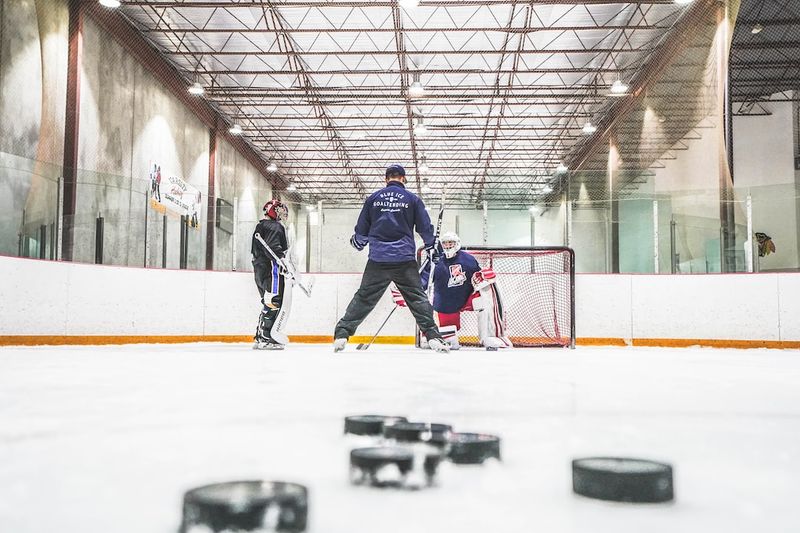Sports Hockey: Troy Terry and the Ducks are not on the same page
Introduction
In a staggering display of disparity, the demands of forward Troy Terry and the Anaheim Ducks regarding his salary have brought them to an arbitration proceeding. On Monday, hockey expert Elliotte Friedman revealed the figures that each party presented to an arbitrator. Terry, a restricted free agent, is seeking an annual salary of $8 million, while the Ducks believe he deserves $4.5 million.
Troy Terry’s Performance
Troy Terry, a 25-year-old American, has established himself as a key player for the Ducks since being selected in the fifth round of the 2015 draft. Having played 274 games in the National Hockey League (NHL), Terry has amassed an impressive 176 points. Notably, he has recorded over 60 points in each of the past two seasons, demonstrating his consistency and offensive prowess. In the 2022-2023 season alone, Terry found the back of the net 23 times and provided 38 assists.
The Salary Dispute
The significant gap between Terry’s desired salary and the Ducks’ valuation of his services underscores the challenges in contract negotiations in professional sports. With Terry recently concluding a three-year contract that paid him an average of $1.45 million annually, his request for an eightfold increase raises eyebrows. On the other hand, the Ducks’ offer of $4.5 million might be viewed as underselling Terry’s contributions to the team.
Player Analysis and Team Dynamics
Determining the appropriate salary for a player like Troy Terry requires a deep understanding of player analysis and team dynamics. Evaluating a player’s performance based solely on statistics can be misleading, as it fails to consider intangible contributions such as leadership, work ethic, and locker room presence. Collaborations between players and coaches can also significantly impact a player’s performance and value to the team.
The Role of Arbitration
Arbitration serves as a mechanism for resolving salary disputes, providing an impartial third party to determine fair compensation. While arbitration can help bridge the differences between personal expectations and team valuations, it may not always satisfy both parties completely. The decision reached by the arbitrator will have significant implications for both Terry’s future earnings and the Ducks’ salary cap management.
Editorial
A Question of Value and Fairness
The salary dispute between Troy Terry and the Anaheim Ducks highlights the intricate balance between a player’s perceived value and fair compensation. From Terry’s perspective, his performance justifies a substantial increase in salary. However, the Ducks, as a team operating under a salary cap system, must carefully consider how allocating resources towards an individual player impacts the overall balance and long-term success of the roster.
The Market for Talent
Player salaries in professional sports are influenced not only by on-ice performance but also by market forces. Factors such as players’ performances in comparison to their peers, market demand for specific skill sets, and the team’s financial resources all play a role in determining fair market value. Finding the right equilibrium between compensating players for their contributions while maintaining financial sustainability is a delicate task for teams and their front offices.
A Player’s Worth Beyond Numbers
Beyond the numbers on the scoresheet, a player’s worth extends to intangibles that contribute to team success. Leadership qualities, clutch performances in crucial moments, and the ability to elevate teammates’ performances are all characteristics that cannot be solely quantified. Recognizing these intangibles in contract negotiations helps create a fair compensation package that acknowledges a player’s complete value.
Advice for Negotiations
The Importance of Communication
In the case of Troy Terry and the Anaheim Ducks, clear communication and transparency are essential in reaching an agreement that satisfies both parties. Open dialogue about expectations, future goals, and the team’s long-term plans can help bridge the gap between personal desires and team objectives. By understanding each other’s perspectives, both Terry and the Ducks can work towards a mutually beneficial outcome.
Considering Long-Term Impact
Balancing the immediate financial implications with the long-term sustainability of the organization is crucial for the Ducks. While meeting Terry’s salary demands may secure his services in the short term, it may also limit the team’s flexibility in retaining and acquiring other talent. In negotiations, the Ducks must carefully consider the wider roster implications and determine the maximum investment they can allocate to retain Terry’s services.
Compromise and Finding Common Ground
Negotiations often require compromise. Both parties must identify points of agreement and areas where they can meet halfway. Exploring creative solutions, such as performance-based incentives or different contract structures, can help bridge the gap and pave the way for a successful resolution. Balancing the needs and priorities of both the player and the team is the key to reaching a mutually beneficial agreement.
Conclusion
The salary dispute between Troy Terry and the Anaheim Ducks exposes the complex dynamics involved in contract negotiations in professional sports. As the arbitration process unfolds, the decision reached will have far-reaching implications for both Terry’s career and the Ducks’ future roster construction. Finding a fair and equitable resolution that recognizes both Terry’s contributions and the Ducks’ financial constraints will require open communication, a consideration of intangibles, and a willingness to compromise.

<< photo by Troy T >>
The image is for illustrative purposes only and does not depict the actual situation.
You might want to read !
- Breaking: John Gibson No Longer Playing for Ducks, Requests Trade
- The Rise of Leo Carlsson: Anaheim Ducks Make a Bold Move in the Draft
- Shaking Up the Draft: Ducks Shock with No. 2 Pick, Blue Jackets Make Bold Move
- MLB Trade Deadline Live Updates: Breaking News, In-depth Analysis, and Buzz as Teams Make Moves
- Blue Jays’ Pitcher Strikes Angels’ Taylor Ward in the Face: Examining Safety Measures in Baseball
- “Angels’ Taylor Ward Injured in Face by Blue Jays Pitch: Examining Player Safety in Baseball”
- “Remparts: Les moments forts de cette victoire historique sur la glace”
- Le contrat faramineux de Sebastian Aho avec les Canadiens de Montréal.
- The Importance of Keeping Superstars: Hurricanes Secure Sebastian Aho with $78M Extension
- Can the Young Guns of Manchester United Outshine Borussia Dortmund?
- Coyotes part ways with power forward Alex Galchenyuk: Analyzing the decision
- Exploring Grant Williams’ Reaction to a Trade and his Decision to Decline the C’s Offer
- Justin Holl signs $10.2M contract with Red Wings: What does it mean for the team?
- Raptors Secure Temple with One-Year, $3.2M Contract
- Navigating the Olympics: Canada’s Triumphs and Challenges
- “Republic of Ireland and Nigeria Play Out Stalemate in Women’s World Cup 2023 Opener”




